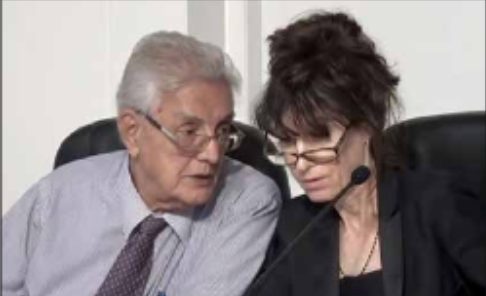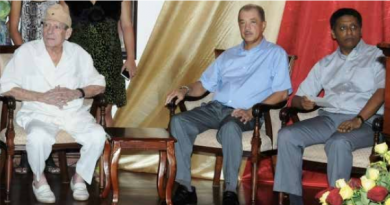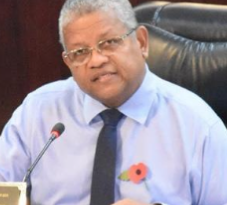TRNUC: Tricks of the Mind
HOW SINCERE ARE THOSE WHO CLAIM TO HAVE FORGOTTEN?
One of the human phenomenon that has come to the fore frequently in the Truth Reconciliation and National Unity Commission (TRNUC) has been that of the memory of witnesses.
We have witnessed how over and over again people who could have given clear insights into incidents such as death and disappearances of victims have claimed that they don’t remember this or that detail, or even that they were not there when others have claimed that they were.
This phenomenon prompted TRNUC Chairperson Gabrielle McIntyre this week to make a short discourse on the value and reliability of human memory, repeated in Creole by Vice-Chair Gilbert Green.
She carefully explained, no doubt in an effort to assuage the pain of certain complainants who come to the TRNUC to see some degree of truth or a sense of closure, that in many cases the fact of not being able to recall certain details does not automatically mean that the person is not telling the truth.
After all, many are being asked to dig deep into their subconscious to recall events that happened and words that were said as far back as 43 years ago (!!) in 1977, the year of the Coup d’états, and sometimes earlier.
Many of these witnesses who were in their youthful 20s at the time are now in their advanced years, beyond their 60s, and while some events flash back clearly as though they happened yesterday, some are hazy and blurry, while others have completely escaped,It’s true, that claiming complete forgetfulness can be convenient to some and in several cases the complainants have simply left it to “God above” (nanryen, i annan en Bondye anler ki war tou) to bring about justice.
So The Independent decided to do a little plunge into the worldwide web to see what some authoritative websites have to say on the subject. We shall leave you to draw your own conclusions or indeed research further, if you remember to do that, that is.So here are some samples of what we managed to dig up:
healthline.com
Human memory is notoriously unreliable, especially when it comes to details. Scientists have found that prompting an eyewitness to remember more can generate details that are outright false but that feel just as correct to the witness asactual memories. In day-to-day life, this isn’t a bug; it’s a feature.
scientificamerican.com
Simply by using a magic memory mix of misinformation, imagination and repetition, 70 percent of my sample came to create a memory that they committed a crime, and 77 percent created false memories of other kinds of highly emotional events.There is currently no way to distinguish, in the absence of independent evidence, whether a particular memory is true or false. Even memories which are detailed and vivid and held with 100 percent conviction can be completely false.”
theconversation.com
Your memory probably isn’t as good as you think it is. We rely on our memories not only for sharing stories with friends or learning from our past experiences, but we also use it for crucial things like creating a sense of personal identity. Yet evidence shows that our memory isn’t as consistent as we’d like to believe. What’s worse, we’re often guilty of changing the facts and adding false details to our memories without even realising.
Quora.com
People tend to place greater faith in the accuracy, completeness and vividness of their memories than they probably should…..”The brain’s ability to store information about what we’ve experienced is of course truly impressive but our sense of a fluent and accurate back story is a clever cognitive illusion. Memory is essentially a reconstructive process and it is far more fallible than most people realise; our brains just as they are in computers. Once registered, the data are put away for safe-keeping and eventual recall. The facts don’t change. Psychologists have pointed out that we also suppress memories that are painful or damaging to our self-esteem. We could say that, as a result, memory is unreliable. We could also say it is adaptive, reshaping itself to accommodate the new situations we find ourselves facing. Either way, we have to face the fact that it is “flexible.”
medicalexpress.com
The new study could have significant implications for recovered memories involving abuse -previous research has claimed that it is possible for people to create false memories of being abused as a child, when memories are recovered through suggestive therapy. Such false memories triggered would impact on future behaviour such as seeking redress in adult life.“Our study is the first ever to show that false memories can be so persuasive that people change their behaviour, both in the short and longer term. We have clearly demonstrated that false suggestions about childhood events can profoundly change people’s attitudes and behaviour in adulthood.”




